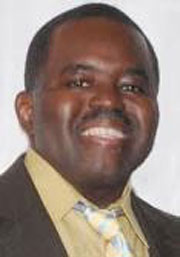
By Roger Caldwell
For thirty years Executive Director Larry K. Williams has dedicated his company Simeon Resource & Development Center for Men Inc, to alleviate racial and ethnic disparities in health, education, employment and incarceration. The agency is well positioned to address the social needs of health, because it has the human capital with expertise in health disparities HIV/AIDS, training, and working with faith-based organizations.
This report took place in Orange County from August to October 2023, and was prepared by Dr. Cynthia Williams, Assistant Professor – University of Central Florida. “If we don’t figure out a way to create equity, real equity, of opportunity and access to good schools, housing, health care, and decent paying jobs, we’re not going to survive as a productive and healthy society,” says Tim Wise.
There are very few surveys done in the minority/Black community, because professionals are afraid and not comfortable working in the urban setting. Violence is a reality in the urban community, and working with seniors gets harder as the residents get older.
In this project, the American Academy of Family Physicians developed this study’s Social Needs Screening Tool. The zip codes areas of interest were the following: 32801, 32803, 32805, 32806, 32811, 32812, 32818, 32822, and 32839. The goals of the assessment was 1, to identify the needs of older adults in minority communities, 2, promote collaboration among key stakeholders, and 3, enable actionable steps to improve social needs in the minority community.
There were 306 individuals that participated in this survey, and the majority was minority/Black, and the average age was 72. There were 63% of women in the survey, and 30% of men, and 87% were Black.
The key findings in the report were in the areas of health insurance, food, housing, transportation, financial security, homelessness, and utilities. There were many ranges of ages that started at 58, and ended at 94 years old. As the older minority/Black community is engaged in living, there must be easy access to resources.
Many family members with seniors have moved away, and the church, senior organizations/centers and friends must be aware if they need help, and direct seniors to the correct resource. Many of these resources are underfunded, and basic items get harder as many seniors live alone in their seventies and eighties.
When there is one problem with a senior, it usually impacts other issues that the senior is afraid to talk about. Now the senior has three problems, and who can the senior talk or turn to.
In the Black community, many problems are solved if the senior’s health is manageable, they can drive, and they can pay their bills, and eat. But, as a result of Covid, many citizens are still struggling to recover when America shut done.
As Mr. Williams did this report with this vulnerable population, food insecurity, housing insecurity, and financial insecurity, impacted everyone in this age bracket. Seniors without a strong family or church connection, many are not eating and close to homelessness.
The purpose of this report is to highlight this vulnerable population in an effort to better address the needs of seniors. Mr. Williams believes in many Black communities throughout Florida, seniors cannot pay their bills, they are struggling to eat and keep the lights on.
These individuals have worked hard and contributed to the country all their life. We all have a responsibility to do more to take care of this vulnerable senior group in our society.
For more information call Larry Williams – Executive Director at (407) 836-6730.


Be the first to comment